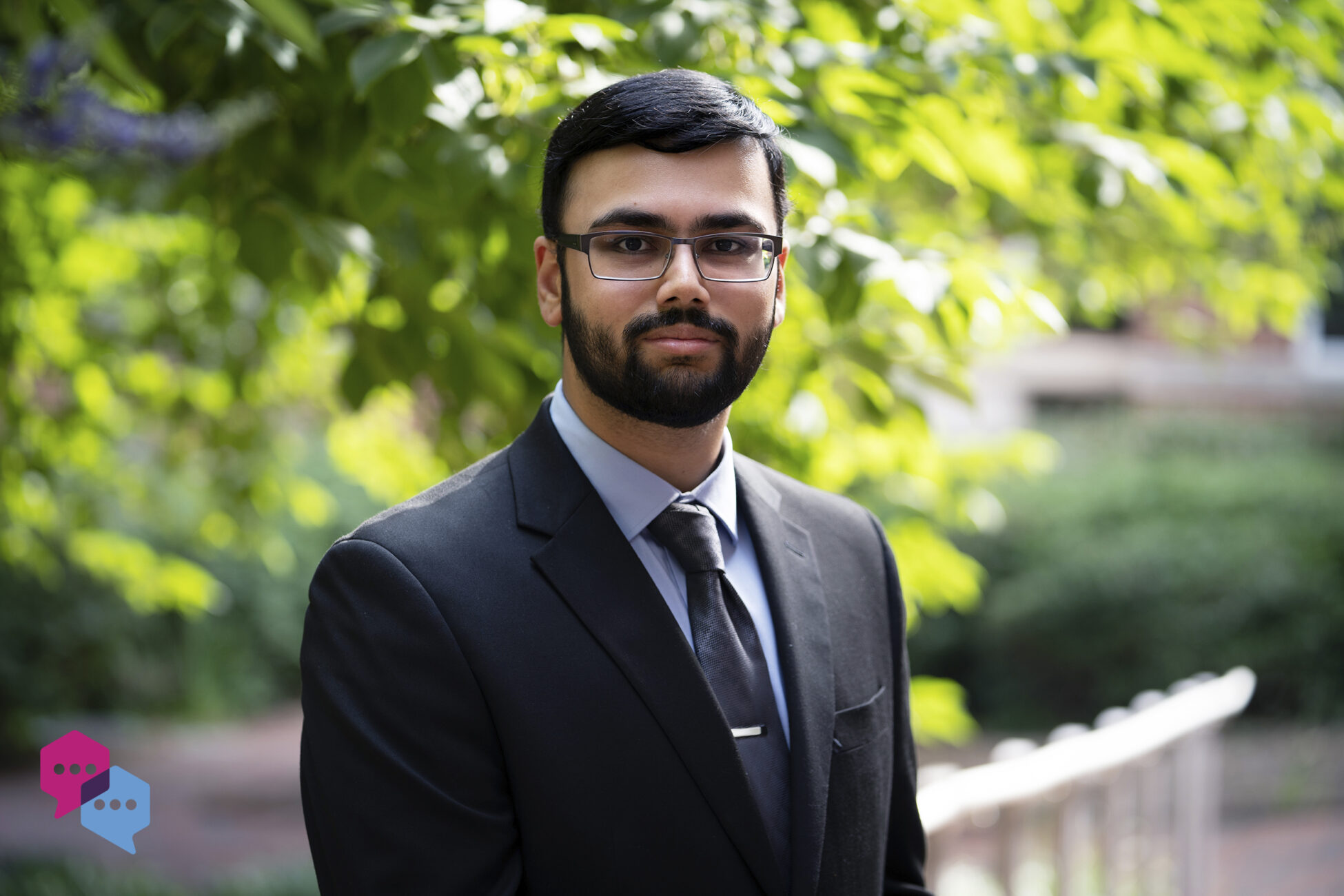Nihar Vaidya is a junior double-majoring in computer science and statistics and analytics within the UNC College of Arts & Sciences. He is also a Chancellor’s Science Scholar. He uses computational neural networks to analyze brain patterns found in MRI data sets to predict when patients may encounter seizures caused by epilepsy.

Q: When you were a child, what was your response to this question: “What do you want to be when you grow up?”
A: I was extremely fascinated with aviation. On trips to India, I would stare out the airplane window, amazed that humans were able to construct a machine allowing us to fly. I was drawn to the sights and sounds of airports, bustling travelers, signs, moving walkways, and the huge windows to view planes from. I was sure that when I was older, I’d want to be a pilot, navigating planes through the clouds. I would frequently visit RDU’s observation deck with my family and friends to watch the planes take off and land — something I still do to this day.
My neighbor at the time, Louis, was a retired Air Force veteran. He would give me Air Force magazines and watch the planes with me in our apartment parking lot. Before he passed away, he gifted me an Air Force Challenge Coin for his work on the F-35, an aircraft used in combat. As I grew older, I found passions in science and engineering, and my focus shifted toward wanting to be an aerospace engineer. Instead of simply flying these machines, I wanted to be the one to build them. Although over time my interests have shifted, I still stop and stare every time I see an airplane flying overhead.
Q: Share the pivotal moment in your life that helped you choose your field of study.
A: The Chancellor’s Science Scholars program was instrumental in not only helping me find my interests in computer science, but also in allowing me to discover my passion for research. The program focuses on increasing diversity in STEM fields and encourages young scientists and researchers to find their passions and excel at UNC. The summer before my first year at UNC, program staff took me on a tour of the computer science laboratories, where I learned about research in medical imaging and virtual reality. I knew this was the field I wanted to pursue. Since the Chancellor’s Science Scholars program places a huge emphasis on undergraduate research, I joined two labs that combined neuroscience with computer science just a few semesters into my time at Carolina.
Q: Tell us about a time you encountered a tricky problem. How did you handle it and what did you learn from it?
A: While working with MRI data sets in my research, I stumbled upon the problem of needing to analyze hundreds of models to determine which one was most accurate. This was an enormous amount of data. I was at a crossroads where I had to determine whether to limit my analysis based on the computational power I had available. After consulting with my faculty mentor, I learned about UNC’s computing cluster, which allowed me to analyze my data in a timely manner by using multiple computers instead of just one. It’s one of the best resources UNC offers its researchers, and a lot of research within neuroscience and computer science would not be possible without it.
Q: Describe your research in 5 words.
A: Computer brains predicting human brains.
Q: What are your passions outside of research?
A: I enjoy learning about new technologies in the computer science field, volunteering with various organizations, and contributing to improving diversity within STEM. I am currently working on an application for improving transparency within health care, something I think is crucially needed in the United States and could help millions of people.
I also think it is important to give back to the community and encourage younger students in underserved communities to pursue their passions. I am the president and founder of the UNC chapter of the Association for Computing Machinery, the world’s largest computing society.
Research UNCovered delves into the lives of UNC researchers from all disciplines and career levels, showcasing not only their research prowess but personal experiences in academia and beyond.
By Endeavors
